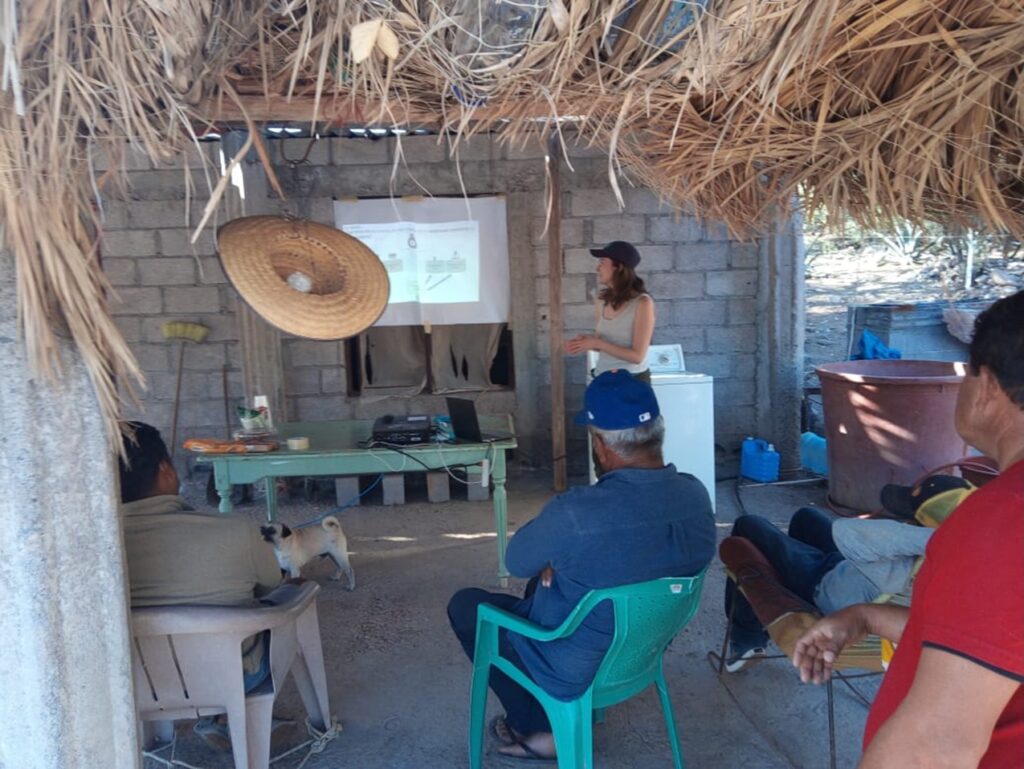Study Reveals How Governance Shapes Fisheries Resilience

Professor Gladstone discusses preliminary study results in Ensenada Blanca, Baja California Sur.
September 24, 2025 — A longitudinal study led by Fiona Gladstone, assistant professor of geography at Fairleigh Dickinson University, reveals how fisheries self-governance structures dramatically influence climatic and economic vulnerability in Mexican coastal communities.
Published in Ecology & Society, the research analyzed five fishing communities in Baja California Sur, Mexico, between 2018 and 2023. It examined how cooperative and non-cooperative governance arrangements influenced responses to COVID-19, climate variability, and shifting policy landscapes.
The findings show that governance structures determine not only access to resources but also fishers’ capacity to withstand external pressures. The study builds on her previous collaborative work with researchers from NOAA, Duke University, Stanford, and the University of Maine as well as civil society practitioners and fishers in Baja California Sur.
Supported by the National Science Foundation (NSF), the research underscores the need for climate adaptation and fisheries policies to account for the wide range of vulnerabilities across different organizational structures worldwide.
“Research on the vulnerability of small-scale fisheries has often overlooked a crucial factor—how fishers are organized,” Gladstone explained. “Organization shapes how they experience and respond to shocks—whether environmental, economic, or political. Equally important is understanding these organizational differences historically and qualitatively.”
The study also highlighted that governance categories are not uniform. “All cooperatives are not alike, nor are all patron-client systems,” Gladstone noted. “Each has its own history shaped by statecraft, capital investment, and social organization. What matters most is how these structures determine fishery access and fishers’ agency over their livelihoods.”
The significance of these findings extends beyond Mexico. They point to the critical role that human organization and government policy play in shaping fisher vulnerability to global change drivers.
Xavier Basurto, professor of Environmental Social Sciences at Stanford University, explained that the research “fills an important gap in our general understanding of how policy choices affect fishers’ livelihoods. The research explicitly focused on individual and family-level effects, and was able to connect those effects to the different ways fishers organize their production systems.”
Heather Leslie, professor of marine sciences at the University of Maine, added: “This study demonstrates the value of interdisciplinary approaches to understanding marine fisheries and communities’ responses to change. We are grateful to NSF and the many fishers and community members who worked with us over the last two decades. I hope these results will be useful as they continue developing strategies to sustain fisheries in Mexico and beyond.”